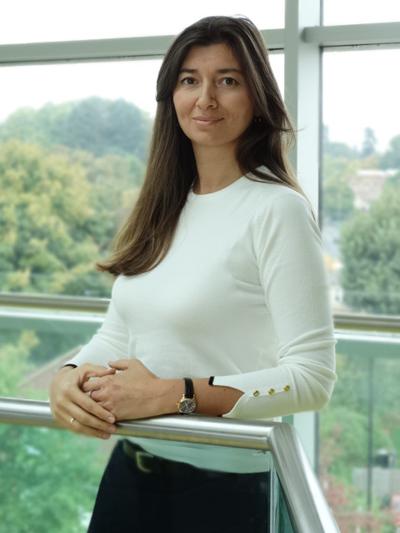
When I joined academia in 2016, I was incredibly inspired by the wealth of knowledge, expertise and state-of-the-art research conducted here at the University of Southampton. I witnessed how findings in genomics, climate change, AI, aging population, air quality, and most recently in the fight against COVID-19, made a real difference to peoples’ lives. This has reinforced my view on the importance of high quality, accessible and timely evidence for policymakers and role of evidence in informing decision making and delivering better policies.
Being part of Public Policy|Southampton provides me with the opportunity to work with policymakers at all levels: local, sub-national, national and international. Most recently, I collaborated with one of our local government partners - Hampshire County Council (HCC) on a project using Behaviour Insights to address Climate Change (you can read more about the project here). The local authority wished to gain insight on the carbon impact of specific citizen actions related to climate change and resilience. In turn, the University, having a strong track record in statistical analysis, was able to offer academic expertise and PhD level support. The final output delivered through this collaboration, including the development of an advanced carbon calculator, led to enhanced decision making at a senior level and informed the HCC’s Climate Change Strategy and Action Plan.
The success of this partnership prompted me to reflect on what were the key factors that helped make this collaboration a success. This is especially timely in the view of Government’s latest agenda around placed-based approach and the value of universities to their local areas.
Trust – and structure. Following two years of policy related knowledge exchange collaboration, University of Southampton and Hampshire County Council established a Joint Working Agreement (JWA) to make it faster to get joint research projects off the ground, share data and pave the way for more knowledge exchange (KE) activities. These KE activities include PhD placements, researcher secondments and one to one briefings for senior leaders from academics. Establishing the JWA took time and patience during the ping pong between legal teams but has proved valuable in avoiding reinventing the wheel with each new KE activity. The Agreement addresses issues such as ownership of IP generated, health and safety of PhDs when conducting an in-person placement (remember those?) and how to manage the flow of data. It also formalises what each party requires from the relationship and the frequency and nature of evaluation of the relationship. It also provided a neat way of making senior leadership aware of the ongoing KE activities through a JWA signing ceremony which is particularly useful in a political organisation in signalling the importance (and existence) of KE. Due to this agreed framework we were able to start climate change and behavioural insight project rapid in response to political timescales and were confident how it would be carried out. Our two year of KE activities helped to trust between parties but undergirding it with the JWA has served to strengthen the relationship by making it more efficient and visible.
Communication. We found that regular communication played a key role in making sure that the work on the project was progressing well and that there were plenty of opportunities to raise and address any questions or concerns. We have also established a quarterly JWA board meeting aimed at setting long term objectives, assessing progress and suggesting improvements. It also helped that the connections made when setting up the framework continued into the initial work on the project.
Collaboration and co-production. Empathy is critical to managing and meeting partner objectives and setting realistic goals for yourself. We have put together a list of objectives jointly with colleagues at HCC for the programme of work that we tried to meet (and where possible even go beyond). This has served as a metrics that we would turn to when checking on key outputs and deliverables.
People. While working on the Climate Change and Behavioural Insight project, there has been a collaborative spirit and a sense of shared purpose. We have fostered a culture of openness (and humour) throughout the project. Placement students were treated as extra members of the team as much as possible and were given access to the discussions and meetings relevant to them, including with senior policy makers.
Time. The pace of change and timescales for outputs between local (and national) government is quite different from the academy. During our earlier collaboration we have discovered that short term, one off projects were difficult to set up, could get cancelled, delayed at the last minute or had politically informed timelines that were unfeasible for academic partners. Instead we looked to create a series of programmes lasting three months or longer with several potential projects under a common theme or linked by a skillset e.g. statistical analysis. We have found this to be a breakthrough in making the most of a PhD’s time and giving better outcomes for Hampshire County Council. PhD’s on placement and local government officers had time to learn and adapt and, often crucially, to make mistakes and improve together.
Yaryna Basystyuk is a Policy Engagement Manager with Public Policy|Southampton (PPS) at the University of Southampton. She oversees PPS Policy|Placement programme with national and local government, manages Cambridge Science and Policy (CSaP) fellowship scheme, and leads on engagement with Universities COP26 Network.